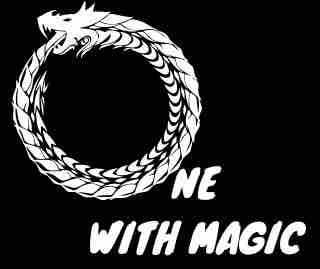Emotional Tolls and Risks of Being a Magician
My world revolves around crafting illusions that spark joy and wonder. Born on the sunny shores of Bahrain with dreams of entertaining, I pursued a BA in Film Studies at London Metropolitan University before settling in the vibrant energy of Dubai. Here, I've built a career turning events—corporate gatherings, private parties, and more—into magical experiences. But today, I want to share a more personal side: the emotional toll that comes with this craft. From performing five or six times in a packed weekend to dealing with skeptical audiences who try to "catch" the trick, it's a rollercoaster. I'm not complaining at all; these are just the realities of the job. As a human, though, it takes an emotional toll, and I've learned to be smarter about it, prioritizing my mental health and viewing these challenges as inherent job hazards. Recognizing them helps me stay sharp and passionate.
Let's break it down starting with the sheer volume of performances. Imagine a typical weekend in Dubai: I might have five or six gigs lined up, each demanding peak energy. It kicks off with a loud brunch at one of the city's trendy spots—think bustling venues like those in Jumeirah or Downtown, where the DJ's beats pulse through the air, glasses clink nonstop, and laughter echoes off marble walls. I'm moving table to table, performing close-up tricks like card revelations or coin vanishes amid the chaos. The noise level means I have to project my voice, read body language over the din, and adapt on the fly. By the second or third show of the day, fatigue creeps in—my hands might tremble slightly from repetition, and that constant smile starts feeling like a mask. Then, as evening falls, I shift to a private party, perhaps in a luxurious villa overlooking the Arabian Gulf. The setting is more intimate, but the expectations are sky-high: Guests want personalized magic, seamless interactions, and no room for error. Juggling these back-to-back? It's exhilarating, but the emotional drain is real. You're giving pieces of yourself each time, pouring creativity and charisma into every moment. As a hazard of the job, it's like any high-performance role—overtime on your soul.
The risks amplify when audiences turn into detectives. Unlike films, movies, or music, where people happily suspend disbelief to lose themselves in the story or melody, magic often provokes the opposite. Viewers come armed with skepticism, eager to unravel the mystery rather than embrace it. "How did you do that?" isn't always asked in awe; sometimes it's a challenge, a probe to expose the method. At a loud brunch, where alcohol flows and inhibitions drop, someone might grab your deck of cards mid-trick or loudly declare, "I know how that's done!" It turns a fun illusion into a confrontation, forcing you to pivot gracefully without breaking character. In private parties, the dynamic shifts—guests might be more polite, but the close quarters mean they're inches away, scrutinizing every gesture. I've had people film tricks on their phones, replaying them later to "catch" the sleight, or insist on inspecting props beforehand. This lack of suspension of disbelief stings because magic thrives on trust; without it, the wonder fizzles. It's not that they're not entertained—many are—but the skeptics create an undercurrent of tension. As a human, this chips away at your confidence over time, making you second-guess routines or feel exposed. Yet, I see it as a job hazard, not a flaw in the art. It pushes me to innovate, to craft tricks that are foolproof and engaging, turning doubters into fans.
Trying new material adds another layer of vulnerability. Magic isn't static; to keep things fresh, I experiment with fusions—like incorporating tech elements from my film studies background or subtle nods to Middle Eastern folklore from my Bahraini/Pakistani roots. But debuting a new trick in a live setting? That's a gamble. At a brunch, amid the noise and distractions, if it doesn't land perfectly, the emotional fallout is immediate—awkward silence, polite claps, or worse, outright dismissal. Private parties heighten the stakes; with smaller groups, every reaction is magnified. The risk of failure looms large, leading to sleepless nights rehearsing, obsessing over angles and timing. This "brain damage," as some call the mental grind, can lead to burnout if unchecked. I've felt it—the post-gig exhaustion where doubt whispers, "Was it worth it?" But again, no complaints; it's the hazard that fuels growth. To counter it, I've gotten smarter: I schedule buffer time between gigs for rest, listen to positive music or podcasts to recharge, and practice mindfulness to process the toll. Mental health isn't optional; it's essential. Journaling about tough shows helps me reframe skeptics as opportunities to refine my craft, turning emotional weight into wisdom.
These elements weave into the broader risks of the profession. Stepping in front of strangers repeatedly means constant exposure—reading rooms, adapting to vibes, and handling unpredictability. A brunch crowd might be rowdy and forgiving, but a private party could be reserved and critical. The emotional toll accumulates: Joy from successful connections, but weariness from the misses. As someone who's hustled from Bahrain's humble beginnings to Dubai's competitive scene, I've learned resilience is key. It's like any demanding field—doctors face life-or-death pressure, entrepreneurs risk failure—but for magicians, it's the intimate battle with perception. People don't always see the hours of preparation; they see the "trick," and if skepticism wins, it feels personal.
In the end, embracing these hazards makes the magic deeper. The toll teaches empathy, sharpens skills, and reminds me why I love this: Those moments when a skeptic's eyes widen in genuine awe? Priceless. By caring for my mental health—through rest, reflection, and boundaries—I ensure I can keep performing at my best.

